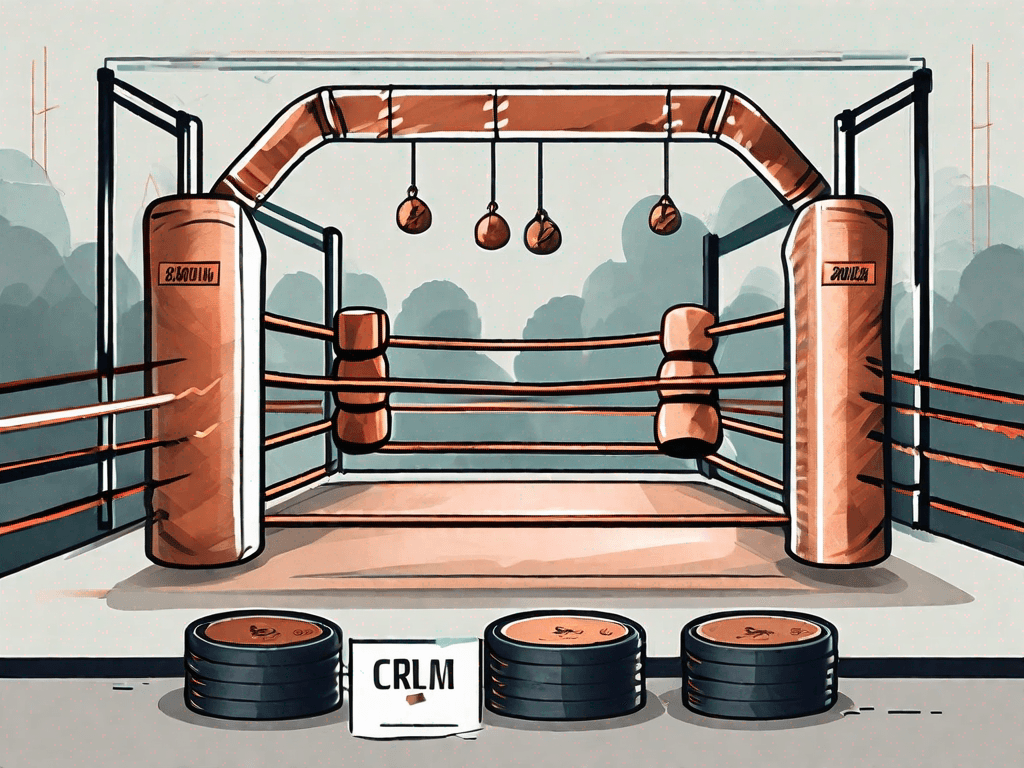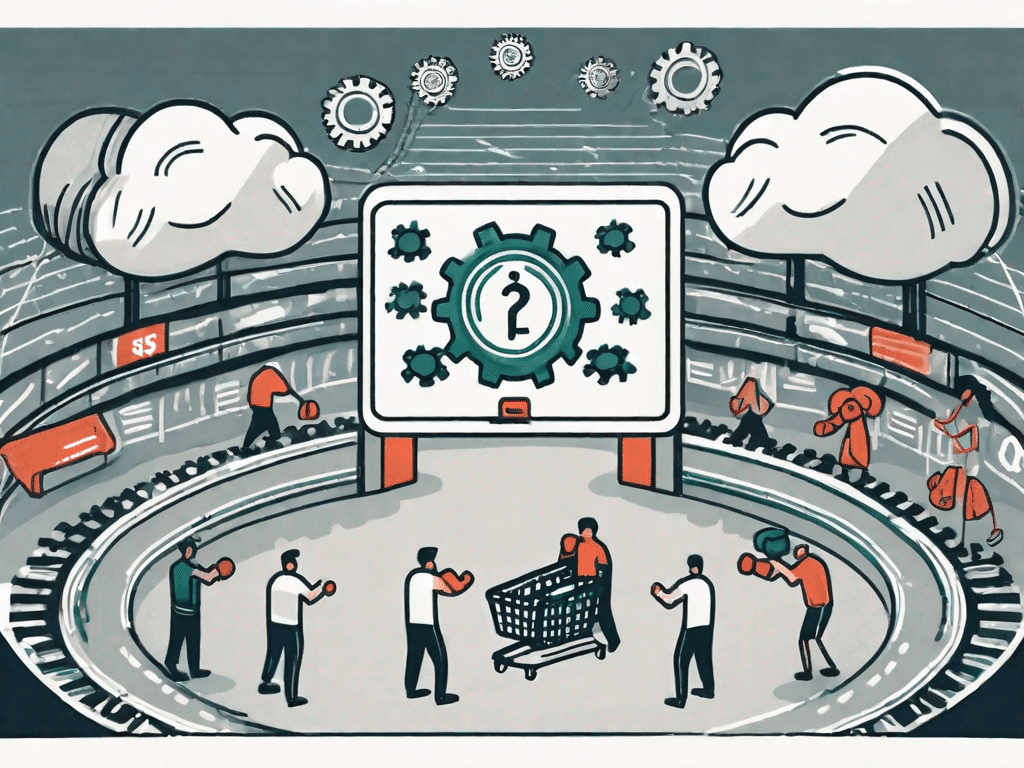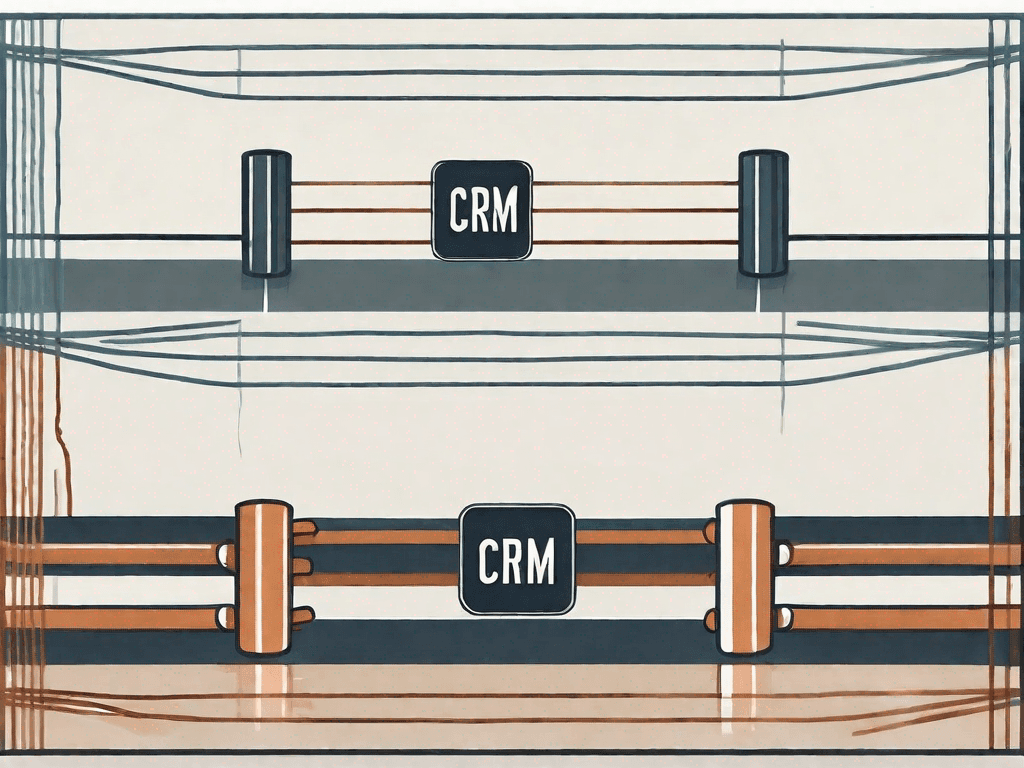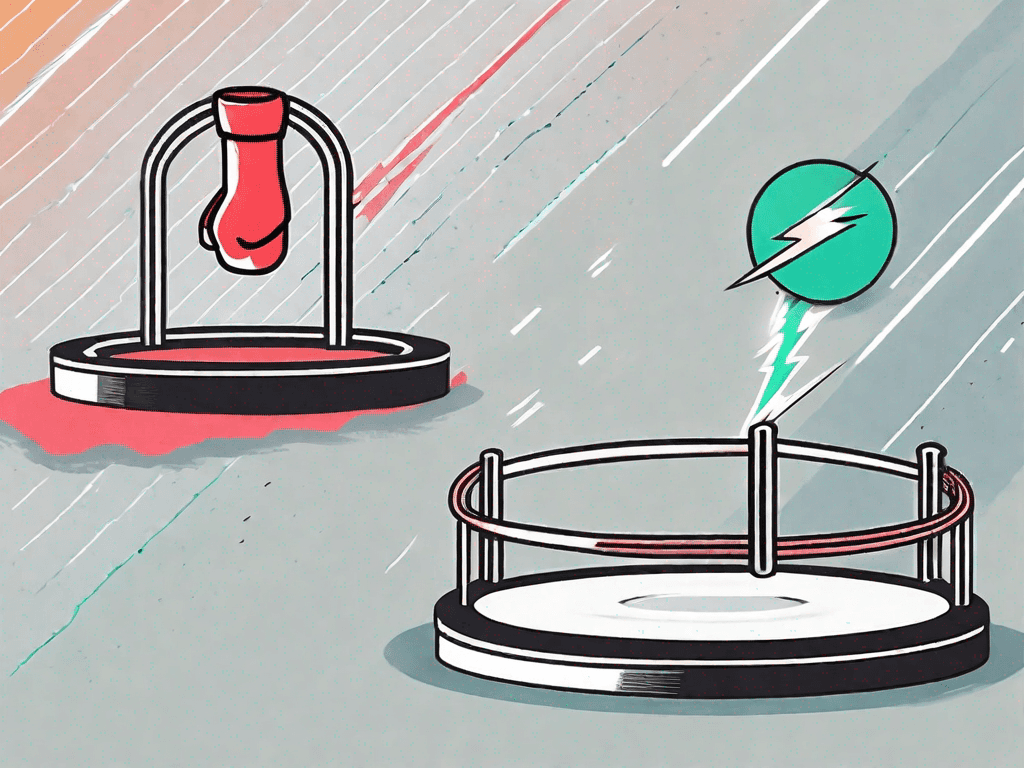Much like Notion, ClickUp is a popular project management tool that offers a wide range of features and functionality. However, when it comes to using it as a Customer Relationship Management (CRM) system, there are certain limitations and drawbacks that you need to be aware of. In this article, we will explore why ClickUp may not be the best choice for managing your customer relationships and what alternatives you can consider.
1. The Limitations of ClickUp as a CRM
While ClickUp is a robust project management tool, it lacks several key features that are essential for effective CRM. Let's take a closer look at some of these limitations:
1.1 - It's not designed to Drive Sales

ClickUp primarily focuses on task and project management, which means it may not provide the necessary tools and functionalities to drive sales and manage customer relationships effectively. Unlike specialized CRM systems, ClickUp doesn't offer features specifically tailored to sales processes, such as sales pipeline management, lead tracking, or contact management.
Without these features, businesses using ClickUp as a CRM may struggle to:
Track and manage their sales activities efficiently — The lack of sales pipeline management means that businesses may find it challenging to visualize and track their sales opportunities from initial contact to closing the deal.
Monitor and nurture potential customers — The absence of a cohesive lead tracking feature may hinder a businesses' ability to track potential leads resulting in missed sales opportunities.
1.2 - Lack of Automation Features

Automation is a crucial aspect of modern CRM systems. It helps streamline repetitive tasks, saves time, and improves efficiency. Unfortunately, ClickUp lacks robust automation features that are often found in dedicated CRM tools.
Without automation capabilities, businesses using ClickUp as a CRM may find themselves:
Spending significant time and effort on manual tasks that could otherwise be automated — Without automated email workflows, businesses may need to manually send follow-up emails to customers, resulting in decreased productivity and potential errors.
Struggling to meet deadlines and opportunities — The absence of automation features may limit businesses' ability to set up automated reminders and notifications, leading to missed deadlines and opportunities.
1.3 - Limited Reporting and Analytics

An integral part of CRM is gathering valuable insights from your customer data. While ClickUp does provide some reporting and analytics features, they are not as comprehensive or advanced as those found in dedicated CRM platforms.
The limited reporting capabilities of ClickUp may restrict businesses' ability to analyze and interpret their customer data effectively. Without in-depth reporting and analytics, businesses may struggle to:
Track key performance indicators — Such as customer acquisition cost or customer lifetime value, which are essential for making data-driven decisions.
To understand their customers' behavior and preferences — The absence of advanced analytics features limits their ability to personalize their marketing and sales efforts.
While ClickUp is a powerful project management tool, it falls short in providing the necessary features and functionalities to serve as a comprehensive CRM solution. Businesses should consider alternatives that offer specialized sales features, robust automation capabilities, and advanced reporting and analytics functionalities, that comes stocked in the most basic CRM systems.
2. What Should You Use Instead of ClickUp as CRM?
If you're looking for a CRM solution that offers robust sales and marketing features, there are several alternatives to consider:
2.1 - A Sales CRM

A sales-focused CRM solution such as Breakcold, Salesforce, HubSpot CRM, or Pipedrive can provide the features and functionality needed to effectively manage your sales processes. These tools offer comprehensive sales pipelines, lead tracking, contact management, and powerful automation capabilities. They are designed specifically to help sales teams increase their efficiency and drive revenue.
For example:
Breakcold is a lightweight CRM with powerful social selling capabilities. Sales teams can connect, monitor, and track leads on social media platforms like LinkedIn and Whatsapp — consolidating all lead data in one easy-to-access inbox. Sales reps have the added benefit of keeping up to date with the latest news regarding their leads with Breakcold's Engagement Feed — personalizing outreach in a matter of minutes.
Salesforce is a widely recognized CRM platform that offers a wide range of features to streamline your sales operations. With Salesforce, you can easily manage your sales pipeline, track leads, and monitor the performance of your sales team. The platform also provides advanced automation capabilities, allowing you to automate repetitive tasks and focus on building relationships with your customers.
HubSpot CRM is another popular choice for sales teams. It offers a user-friendly interface and a range of features to help you manage your sales processes effectively. With HubSpot CRM, you can track your deals, automate follow-ups, and gain insights into your sales performance through detailed analytics.
Pipedrive, on the other hand, is known for its simplicity and ease of use. It provides a visual sales pipeline that allows you to easily track and manage your deals. Pipedrive also offers powerful automation features, helping you save time and improve productivity.
Incorporating AI resource management can further enhance these CRM platforms by optimizing resource allocation and improving overall efficiency.
2.2 - A Marketing CRM

If your focus is more on marketing and customer engagement, a marketing CRM like HubSpot CRM or ActiveCampaign may be a better fit. These platforms combine CRM functionality with powerful marketing automation tools, allowing you to nurture leads, create personalized campaigns, and track customer interactions across various channels. They offer robust reporting and analytics features to measure the effectiveness of your marketing efforts.
HubSpot CRM, for instance, not only provides sales features but also offers a comprehensive suite of marketing tools. You can create and manage email marketing campaigns, track website visitors, and analyze the performance of your marketing efforts. The platform also integrates seamlessly with other HubSpot products, allowing you to have a unified view of your customers across your entire marketing and sales funnel.
ActiveCampaign is another marketing CRM that focuses on automation and personalization. It offers advanced email marketing features, including automation workflows, segmentation, and dynamic content. With ActiveCampaign, you can create targeted campaigns based on customer behavior and preferences, ensuring that your marketing messages resonate with your audience.

Final Thoughts + Takeaway
In conclusion, while ClickUp is a versatile project management tool, it may not be the best choice for managing your customer relationships and driving sales. With its limitations in sales-focused features, automation capabilities, and reporting and analytics, it's wise to explore dedicated CRM solutions that are designed specifically to meet these needs. Consider choosing a sales or marketing CRM that aligns with your business goals and requirements, empowering you to build stronger customer relationships and achieve greater success.











































































































































































































